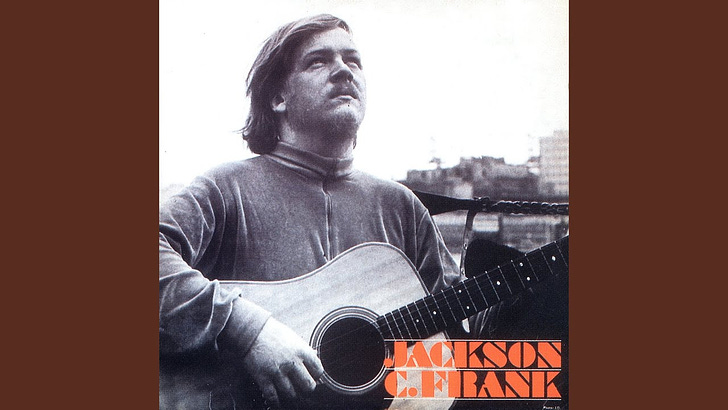constellations #88: maybe tomorrow, honey
Hi again.
Happy December. I heard a lot of wonderful music this year, but this was the first year in many years that I did not participate in any publication’s best-of-the-year music lists in a terribly substantive way1. There were some things I missed about that process and some things I did not. But anyway, in that spirit, I did want to take a minute to tell you about a song and an album that I really loved this year. (Fair warning: the song was not released this year, even this decade! But it’s good, I promise!)
I’ll be back in your inbox in a few days with a big list, my annual reflection on the year via the things that kept me company through it (as is my tradition; see: 2022; 2021; 2020). But for now, I hope you enjoy the music.
***
My favorite record of the year was Greg Mendez’s self-titled album. It came out in early May. The first time I heard it I was alone, walking the streets of Manchester, England, where I was visiting my brother, and honestly I hit “play” on it because I’d seen it hyped a lot on Twitter by people whose taste often overlaps with mine. (I could have just said “word of mouth” there but wanted to be honest; and anyway, I appreciate when people are enthusiastic about music online!) I loved it immediately. The songs are sweet and uncomplicated; the melodies are beautiful; the lyrics are both painstaking and conversational. I’ve heard Mendez described as a peer of Alex G and an acolyte of Elliott Smith and I think that’s right. There is a lot of ache and empathy in the stories Mendez tells — I think that’s what kept me coming back to these songs, over and over.
But the album really clicked for me a few weeks later, when I saw Greg Mendez play at Purgatory in Brooklyn. The room was small and it felt like everyone in there was friends with each other. (I, too, ran into a friend there — what are the chances.) Allegra Krieger opened, as did Shannen Moser — a really wonderful lineup. And Mendez’s headlining set was so delicate and beautiful I hardly wanted to breathe during it. “Maria” is the song on the album that I most looked forward to hearing live — an impressive compression of anxiety and connection and heartbreak and addiction into under two minutes; it’s the one I think most people have heard. (I got to write about it for Pitchfork’s year-end songs list, but I prefer Quinn’s writeup from when the song was first released.) The turn it takes in the bridge — when, after tumbling through a sorta-funny story about getting “arrested at a crack den,” as Mendez puts it, the drums pull back and he admits, “Earlier that day we were both clean / but then somebody said, ‘Come back to me’ ” — is so stunning it breaks my heart. (I don’t think you need to know that Mendez personally went through a pretty gnarly experience with substance abuse for those lines to feel quietly gutting, but I do feel like, for me, knowing a little more about his experience — I like this Bandcamp profile — grounded the record and gave me new ways of thinking about it.)
Anyway “Maria” was great live but what really knocked me out at the show was his rendition of “Cop Caller,” which Shannen Moser sang, too. (This is from a different show, but around that same time, if you want to watch for yourself.) It’s a song about love that is real and deep but marred by damage, about wanting to care for someone but not being sure how best to. To be honest it made me think of people I know and love who, from a deep place of desperation, want badly to be soothed but can’t resist handling their wounds like a weapon — that kind of wild grasping for sense or stability, somewhere to lay the blame. It’s hard to know what to do in the face of it; I can’t say I’ve ever handled the experience with the grace of this song. So much of the album is like that: filled with empathy for the hurt people it depicts, including its narrator, without shying away from the pain that results from that pain. (Spoken clearly on a song like “Clearer Picture (Of You)”: “Goddamn, you sure had suffered enough / but my love couldn’t cover it up,” and then later, “I know your mama treated you bad / but now you’re treating me pretty bad.”) When I got home from the show I couldn’t stop listening to “Cop Caller,” and really the whole album, and kept listening to it all year. One time I put it on in the car and Matt made an admittedly very cutting remark about how damn sad the album is. Sure, I guess, but I don’t really think of these as necessarily sad songs — they are patient songs of survival, of heavy optimism. I think I will be returning to them for a long time.
***
The song I listened to the most this year was “Blues Run the Game,” by Jackson C. Frank. It’s a timeless song, a folk classic, originally released in 1965; Simon & Garfunkel covered it, and so did Nick Drake; I also love more recent versions by Laura Marling and Haley Heynderickx. It comes from Frank’s self-titled debut album, his only proper studio release. Paul Simon produced it. Frank lived a troubled life — he experienced a traumatic accident as a child that led to lifelong health problems; he suffered from schizophrenia and depression, which worsened after the release of his record; he spent much of his later life homeless and broke. I first heard of him because of a Hop Along song written from his perspective that came out in 2015 — but I guess I was so transfixed by the way Frances’ voice reaches and cracks in that bridge (What have they done with my jealous one? / Who is gonna talk trash long after I'm gone?) that I was never moved to look into the song’s backstory until years later.
But once I heard “Blues Run the Game” this year, I knew it was one of the best songs I’d ever heard — a portrait of inescapable sorrow, the inevitability of encountering yourself at the end of every road: “Wherever I have gone / wherever I’ve been and gone / the blues are all the same.” Living and loving are a gamble, Frank sings, and wherever he’s played, “the blues have run the game.”
I kept listening to “Blues Run the Game” all year because some days that was exactly how it felt. Maybe that sounds dramatic, but “Blues Run the Game” isn’t a song about drama — it’s not (as far as I can tell; truly, this is all just my opinion) about being overrun with grave misfortunes, or about a specific tragic heartbreak or heartbreaker, even if those may have been features of Frank’s life. I like that “Blues Run the Game” instead describes an orientation towards the world, or of the world towards you; a confirmation that no matter what you seek or where you seek it, things might still seem a little off, the game a little rigged, in big ways and small. (I talked a lot with friends this year about whether a persistent sense of loneliness and dissatisfaction and out-of-place-ness could perhaps have less to do with where one is than who one is; maybe, in other words, sometimes you are just a person for whom the blues are running the game.)
What really gets me every time is the penultimate verse: “Maybe tomorrow, honey / Some place down the line / I'll wake up older / So much older, mama / I'll wake up older and I'll just stop all my trying.” (I think, of course, of Mitski’s “Fireworks,” which I wrote about earlier this year: “One morning this sadness will fossilize / and I will forget how to cry.”) Some days I would think: does he mean he’ll stop trying to outrun the blues — admit defeat, be consumed by them, give up hope? Some days I would think: maybe all the trying itself is what lets in the blues in the first place. I asked Matt what he thought the last verse means and he argued for the latter: stop trying to make everything different — maybe just try being happy with what you have. Like: the blues can’t win a game you aren’t playing. But I have listened to this song countless times this year and I still don’t know if I can, or even want to, stop playing, or what exactly that would entail. Of course that is the genius of the song to me — of course I’d love it less if it ended with some high-rolling gambler’s insight on how to beat the house. Of course I love the poetry of how it ends by repeating the opening lyrics, that it creates a cycle; that the blues come following down like the earth spins in its orbit. I’ll grant that this one is a sad song but truly it is a perfect song about sadness, a perfect companion for an aimless year, a year when it all felt very blue, and the earth kept turning anyway. Maybe tomorrow, honey.
Here are some other things I have been consuming lately: Anatomy of a Fall; Past Lives; Earlier by Sasha Frere-Jones; No Meat Required by Alicia Kennedy; green tea Kit-Kats and pretzel M&Ms from Economy Candy on the Lower East Side; a visit to the holiday light display at the Brooklyn Botanic Garden; a class on the feminist sex wars of the ’70s/’80s taught by Sophie Lewis at the Brooklyn Institute for Social Research (loved it, highly endorse); a truly excellent live cover of Ashlee Simpson’s “Pieces of Me” by my friend’s band Carrying — an all-time classic; Jenna Gribbon’s “The Honeymoon Show!”; Tomberlin at Murmrr Theatre; a case of the novel coronavirus, right in time for Christmas
***
Thanks so much for reading. I’d love to know about your favorite music of the year. Happy holidays. Talk soon!
xo,
M
I did get to take part in Pitchfork’s year-end lists, which was fun and for which I was very grateful!




